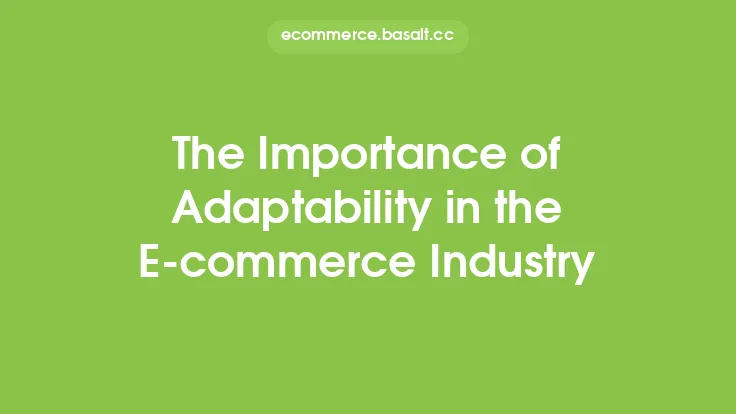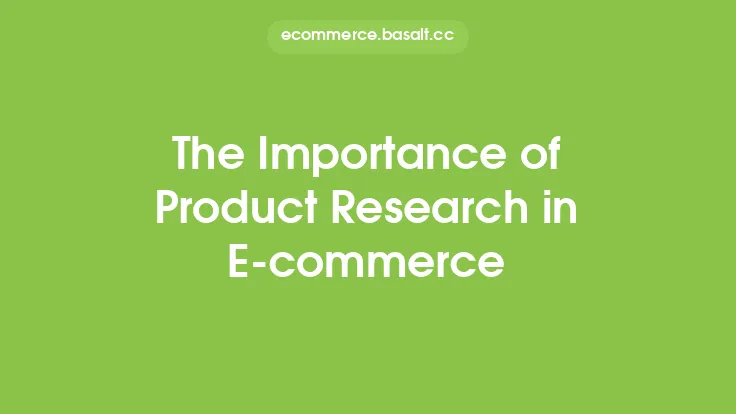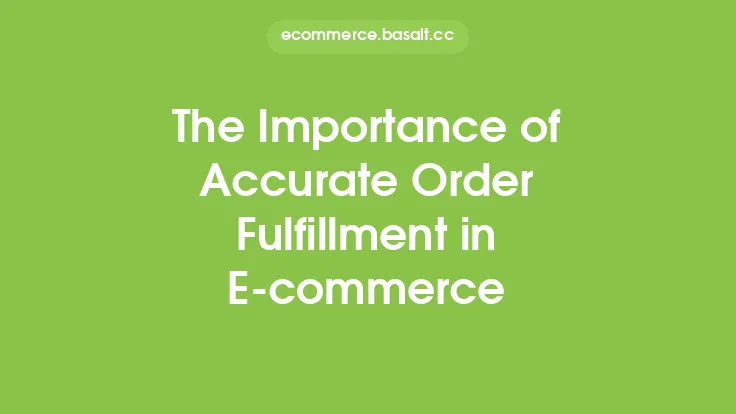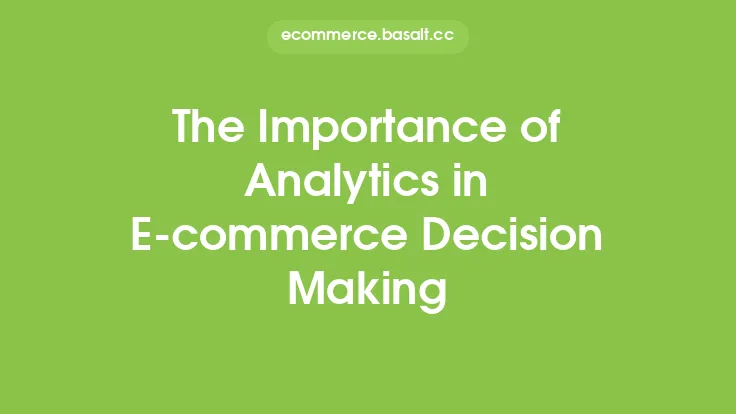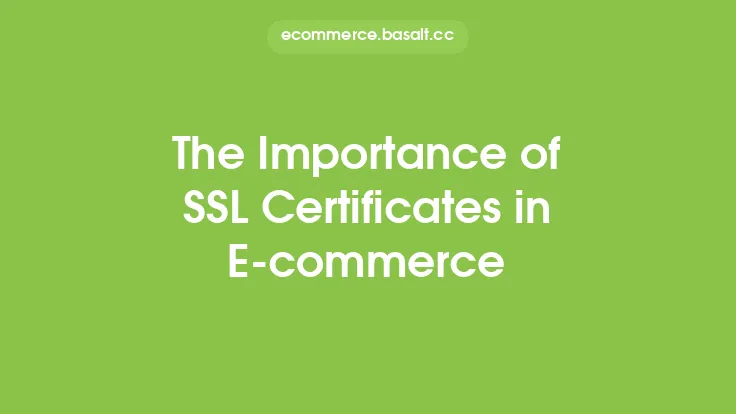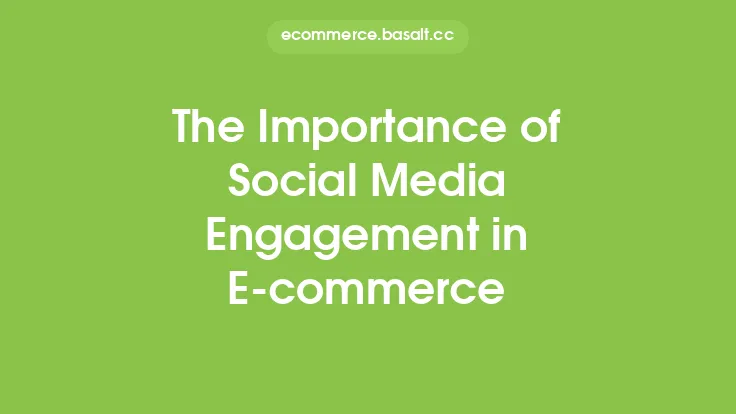In the world of e-commerce, forecasting plays a vital role in the success and sustainability of online businesses. It involves using historical data, trends, and other factors to predict future events, such as sales, revenue, and customer behavior. By accurately forecasting these events, e-commerce businesses can make informed decisions, optimize their operations, and stay ahead of the competition. In this article, we will delve into the importance of forecasting in e-commerce, its benefits, and how it can be used to drive business growth.
Introduction to Forecasting in E-commerce
Forecasting in e-commerce is a complex process that involves analyzing various data points, including sales data, website traffic, customer demographics, and market trends. By using this data, e-commerce businesses can identify patterns and trends that can help them predict future events. For example, a business may use historical sales data to forecast future sales, or analyze website traffic to predict peak shopping periods. By having an accurate forecast, e-commerce businesses can make informed decisions about inventory management, marketing campaigns, and resource allocation.
Benefits of Forecasting in E-commerce
The benefits of forecasting in e-commerce are numerous. One of the most significant advantages is that it allows businesses to optimize their inventory management. By accurately forecasting demand, businesses can ensure that they have the right products in stock, at the right time, and in the right quantities. This can help to reduce stockouts, overstocking, and waste, which can have a significant impact on the bottom line. Forecasting also enables businesses to plan and budget more effectively, as they can anticipate future sales and revenue. Additionally, forecasting can help businesses to identify opportunities and threats, such as changes in customer behavior or market trends, and make strategic decisions to stay ahead of the competition.
Types of Forecasting in E-commerce
There are several types of forecasting that can be used in e-commerce, including qualitative and quantitative forecasting. Qualitative forecasting involves using judgment and expertise to make predictions, while quantitative forecasting involves using statistical models and data analysis. Some common types of quantitative forecasting include time series analysis, regression analysis, and exponential smoothing. Time series analysis involves analyzing historical data to identify patterns and trends, while regression analysis involves using statistical models to forecast future events. Exponential smoothing involves using weighted averages to forecast future events, with more recent data given more weight.
Best Practices for Forecasting in E-commerce
To get the most out of forecasting in e-commerce, businesses should follow best practices. One of the most important best practices is to use high-quality data, as forecasting is only as good as the data that is used. Businesses should also use a combination of qualitative and quantitative forecasting methods, as this can provide a more accurate and comprehensive forecast. Additionally, businesses should regularly review and update their forecasting models, as market trends and customer behavior can change quickly. It is also important to consider external factors, such as seasonality, holidays, and economic trends, when making forecasts.
Common Challenges in Forecasting
Despite the importance of forecasting in e-commerce, there are several common challenges that businesses may face. One of the most significant challenges is data quality, as poor data can lead to inaccurate forecasts. Another challenge is the complexity of forecasting models, as these can be difficult to understand and implement. Additionally, businesses may struggle to balance short-term and long-term forecasting, as these can have different priorities and requirements. Other challenges include dealing with uncertainty and variability, such as changes in customer behavior or market trends, and ensuring that forecasting is aligned with business goals and objectives.
Future of Forecasting in E-commerce
The future of forecasting in e-commerce is exciting and rapidly evolving. One of the most significant trends is the use of artificial intelligence (AI) and machine learning (ML) to improve forecasting accuracy. These technologies can analyze large datasets, identify patterns and trends, and make predictions with a high degree of accuracy. Another trend is the use of real-time data, such as social media and website analytics, to inform forecasting decisions. Additionally, there is a growing focus on using forecasting to drive business growth, rather than just to optimize operations. This includes using forecasting to identify new opportunities, such as emerging markets or customer segments, and to make strategic decisions about investments and resource allocation.
Conclusion
In conclusion, forecasting is a critical component of e-commerce success, as it enables businesses to make informed decisions, optimize their operations, and stay ahead of the competition. By using high-quality data, a combination of qualitative and quantitative forecasting methods, and regularly reviewing and updating forecasting models, businesses can get the most out of forecasting. While there are common challenges in forecasting, such as data quality and complexity, these can be overcome with the right strategies and technologies. As the e-commerce landscape continues to evolve, the importance of forecasting will only continue to grow, and businesses that prioritize forecasting will be well-positioned for success.
